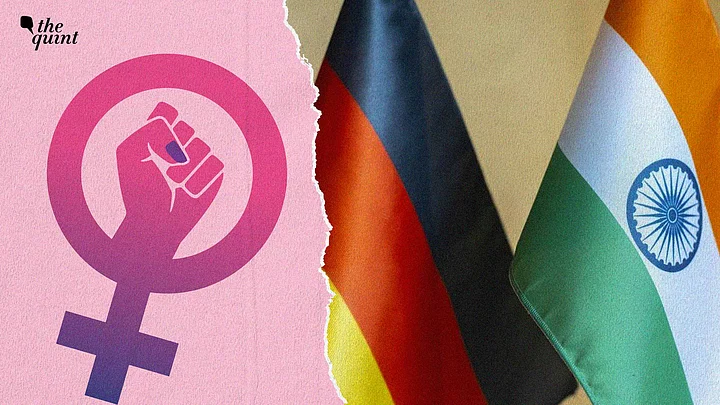Delhi is an incredibly diverse city, both socially and culturally – how else could it be for a mega city of 30 million, a metropolis that attracts people from all corners of a subcontinent of 1.4 billion people? As German Ambassador in India, I am lucky that I get to discover unique spaces and meet many people that tell exceptional stories.
One very strong recent memory I have is talking to the talented and smart young women at Delhi's Lady Shri Ram College for Women. This institution stands out in the country’s educational space. It looks back at a proud history, having trained some of India’s – and even South Asia’s – most remarkable and influential women.
Focusing on women’s education, Lady Shri Ram College makes a very clear statement: educated and confident women will change our societies for the better – but societies still need to make social, cultural, and institutional changes to allow their participation in all areas.
There's a Lot More Left to Do
One might point to many important historical and contemporary female leaders around the world, who are role models and pioneers of gender equality. Some might say that we have already achieved a lot in terms of gender equality.
However, I would like to challenge this perception.
Let’s be honest: there is still a 'glass ceiling', an invisible barrier of social norms and perceptions that prevents many women from advancing in their careers. In most countries around the world, the chances for men and women are not truly equal – not yet at least.
This was the conclusion at the end of a recent discussion – 'Diversity in Diplomacy' – that I had with two highly appreciated female Ambassador colleagues. We agreed that while there are always forerunners, whose contributions cannot be underestimated, more needs to be done.
This is why Annalena Baerbock, Germany’s first woman foreign minister, has made 'Feminist Foreign Policy' – or FFP – one of the cornerstones of her work. FFP emphasises two things:
The foreign service should confer equal rights and opportunities to all its members, regardless of their background
All 'recipients' of foreign policy should get same treatment – in other words, we want to pay special attention to women and the most marginalised groups in key areas of foreign policy, such as conflict resolution, climate change and humanitarian aid
We support FFP because we believe it is a fundamental matter of fairness. But let me also underline that there is a strong case for equal rights and opportunities in terms of efficiency.
A McKinsey study proved that more diverse teams are more efficient.
Another study of the International Peace Institute concluded that peace agreements that have been negotiated by women are more long-lasting. So, even just out of plain rational self-interest, every manager and every leader should explore how the diversity of their organisation can be increased.
In the same spirit, our Economic Cooperation Ministry’s 'Feminist Development Policy' ensures that inclusiveness is reflected in all our upcoming projects. Our underlying conviction is that efficient and sustainable development is based on equal participation of women and other marginalised groups.
Working Together
As different as India and Germany may be, realising equal rights and opportunities is a universal problem that affects as all. As the panel discussion with my colleagues, one from Europe and another from Southeast Asia, showed – we can really learn from each other, as we all sit in the same boat.
In this context, I am proud to say as German Ambassador in India that Germany and India are leaders in this regard.
India has brought the concept of women-led development to G20, a highly commendable effort with a lasting impact for generations to come.
This year’s 7th Germany-India Inter-Governmental Consultations consequently encompass cooperation on promoting gender equality. Our leaders committed to encourage women-led development and to promote the critical role that women play in this regard.
Let me emphasise that many of our bilateral economic cooperation projects, which fall under the Global and Sustainable Development Partnership, have already a strong gender component. In German Indian Trilateral Development Cooperation, where India and Germany are partnering to address third country needs, we already focus on women empowerment in one lighthouse project in Malawi.
These important outcomes are foundations for more cooperation also on women empowerment, for example, during the implementation of our Green and Sustainable Development Partnership, during our bilateral policy planning dialogue, and our trilateral development cooperation as well as in international forums such as the United Nations and G20.
I believe that especially democracies such as Germany and India – which are already visibly and reliably committed to upholding international law and to stabilising the international order – can be credible champions of an inclusive foreign policy.
We can do so in a way that autocratic regimes such as Russia that mistreat their own citizens, as evidenced by the Russian war of aggression against Ukraine, can only dream of.
As both India and Germany are navigating very complex geopolitical landscapes, it is imperative that we underscore our commitment to a stable, peaceful, and inclusive international order. Promoting an inclusive – or 'feminist' – foreign policy is doing just that.
Finally, let me highlight that I am writing this article as part of an initiative of the European Union here in Delhi. Under the motto 'EU Gender Champion', the Embassies of EU Member States alternate to highlight this important topic that affects us all. The German Embassy held the baton for the past four months. I am happy to pass over to our neighbour Austria, who is up next.
(Dr Philipp Ackermann author is the German Ambassador to India and Bhutan. This is an opinion piece, and the views expressed above are the author’s own. The Quint neither endorses nor is responsible for the same.)
(At The Quint, we question everything. Play an active role in shaping our journalism by becoming a member today.)
